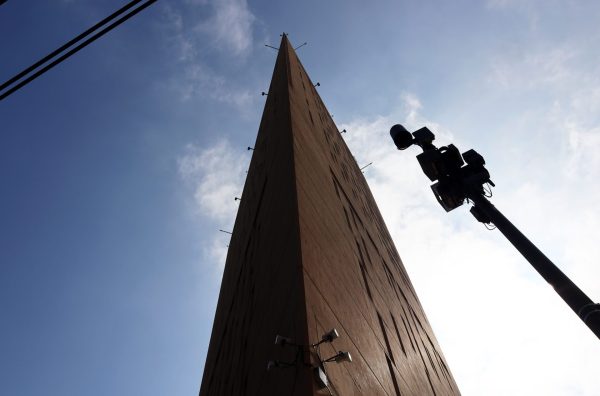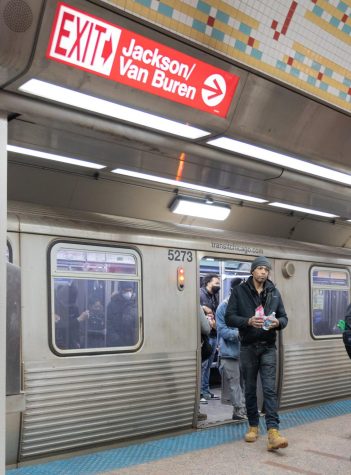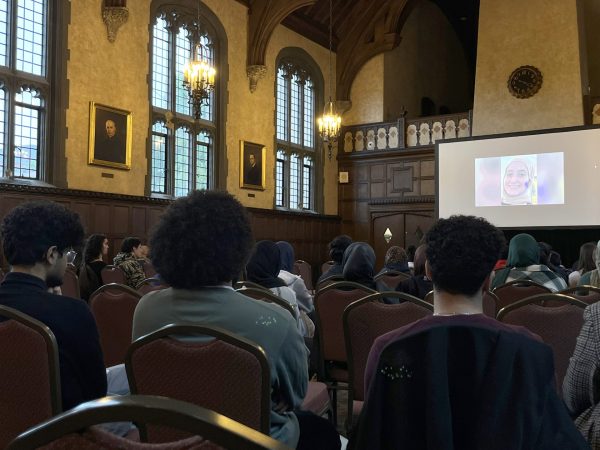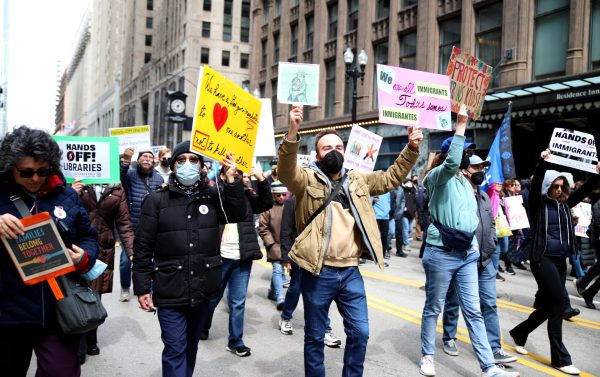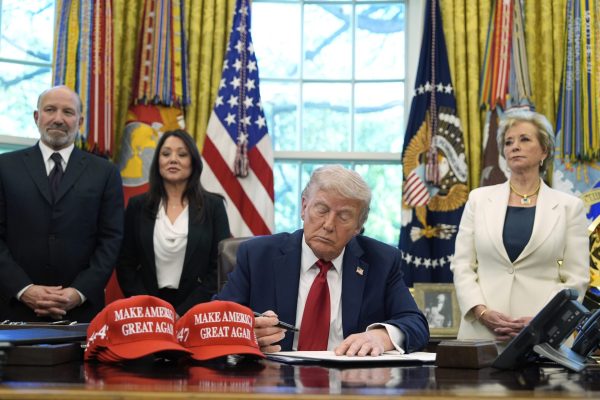City council bans flavored products, proposes further resolution to end youth usage
Credit: Alicia Goluszka/The DePaulia
The Chicago City Council passed an ordinance banning the sale of all flavored e-cigarette products in the city in an attempt to curb youth tobacco usage, effective Oct. 7, per a Sept. 9 press release.
“With flavors like candy and chocolate, these products are designed to entice youth, and we as a city have a responsibility to do everything we can to prevent that from happening,” Mayor Lori Lightfoot said in the release. “This ordinance is an important step, but more must be done to protect our young people’s health from vaping and the tobacco industry’s efforts to have them to develop life-threatening habits.”
A report from the Chicago Department of Public Health found that while cigarette smoking among the city’s youth is down to 3.9 percent, the youth vaping rate is 12.4 percent — an 88 percent increase over the last two years.
Jodi Radke, director of Campaign for Tobacco Free Kids’ Rocky Mountain and Great Plains division, said e-cigarette usage is highest amongst high school students — with 19.6 percent of students being users — and lowest amongst older adults.
“Flavored products have fueled the youth epidemic,” Radke said. “While flavored cigarettes are banned (except menthol), e-cigarettes are widely available in over 15,000 flavors, like gummy bear, cotton candy, mango and mint. 70 percent of you current youth e-cigarette users say they use e-cigarettes ‘because they come in flavors I like.’”
Dr. Craig Klugman, a professor in DePaul University’s department of health sciences, said the advertising for flavored products also targets these younger audiences.
“Vaping advertising is very much geared to a younger audience with the use of flavors, bright colors, celebrities, and social media campaigns,” Klugman said. “These are geared, like ads for cigarettes in the 1950s-90s, to give one a sense of being part of a cool lifestyle if you just partake.”
Despite initial popularity, e-cigarette usage in the United States has attracted intense scrutiny over the last two years.
“Part of the appeal of e-cigarettes is the misconceptions about such products are safer,” Dr. Leonard Jason, a community psychology professor at DePaul who has specialized in smoking habits for nearly 45 years, said. “The ban of flavored JUUL products is a very good thing, and hopefully, it will help reduce its prevalence, particularly among very young people.”
In November 2018, e-cigarette distributor JUUL voluntarily removed all flavored nicotine products except menthol and tobacco flavors from their in-store sales. A wave of illnesses and deaths attributed to e-cigarette usage — especially “bootleg” THC products — broke out last fall, attracting additional scrutiny and resulting in strict FDA guidelines for vaping products at the start of this year.
Radke said JUUL’s discontinuation of certain flavors primarily resulted in users “shifting flavor preferences or switching to other products.”
“From 2018 to 2019, youth use of fruit flavors fell, while youth use of mint and menthol flavors increased by 50 percent, and overall youth e-cigarette use increased from 20.8 percent to 27.5 percent,” Radke said. “In 2020, after JUUL had removed its mint flavor from the market, 37 percent of youth e-cigarette users, including 44.5 percent of users of refillable cartridge systems like JUUL, reported using menthol-flavored products.”
Radke said the city council’s move reflects nationwide efforts to ban flavored tobacco products.
“There is growing momentum across the country to end the sale of flavored e-cigarettes,” Radke said. “Already, five states — California, Massachusetts, New Jersey, New York and Rhode Island — and over 275 localities have enacted laws or rules to prohibit the sale of flavored e-cigarettes.”
Arguments against such bans include the notion that users will turn to illicit markets to get flavored products — however Radke said that’s not necessarily the case.
“To date, we have not seen any evidence that flavor restrictions will lead users to an illicit market,” Radke said. “Tobacco companies have consistently exaggerated the risk of an illicit market in order to discourage governments from implementing effective tobacco control measures and to create fear amongst the community.”
Along with the Sept. 9 ordinance, Mayor Lightfoot and the council introduced a resolution to further work on banning all flavored tobacco products in the city — including menthol cigarettes.
“We have come a long way. Twenty years ago, one in four teens in Chicago smoked cigarettes. Today, that number is down to one in 25,” said CDPH Commissioner Allison Arwady. “Yet the growing vaping epidemic is unacceptable, as are the increasing inequities in tobacco use. To advance health and equity, we must keep going.”



